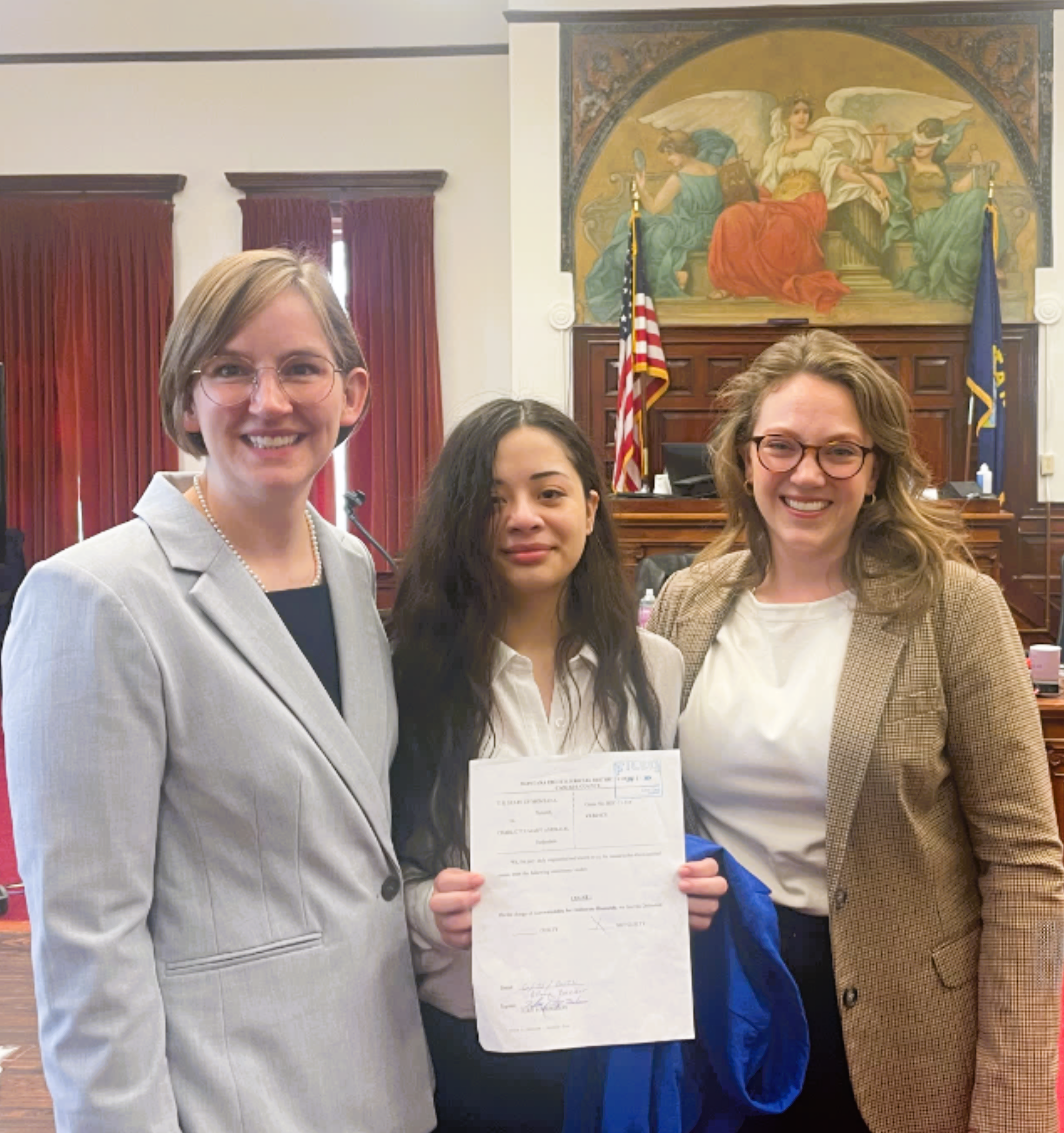Get A Free Consultation
(406) 315-3737
The Defendant, 19-year-old Charlotte Mary Andrade, was charged with Accountability for Deliberate Homicide (felony murder) for the May 23, 2023, stabbing death of Tammey McWilliams in Great Falls. A co-defendant, Bing Ahenakew, was charged separately with the same offense.
The State alleged that Andrade and Ahenakew brutally attacked McWilliams, stabbing her 5 times with a knife, and causing her to die of sharp force injuries. The State presented the testimony of 31 witnesses, including 14 law enforcement officers, 6 experts from the crime lab, and a privately retained blood spatter expert. The Defendant raised an affirmative defense of justifiable use of force—Andrade had been stabbed by McWilliams in the face—and argued that she did not have a knife, she disengaged from the altercation after she had been stabbed, and it was only then that Ahenakew took control of McWilliams’ knife and stabbed her with it.
On the first day of trial, Andrade moved to dismiss the Information on the grounds that Accountability for Deliberate Homicide (felony murder) is a “Frankenstein” charge that impermissibly combines a theory of accountability for § 45-5-102(1)(a), MCA, deliberate homicide with a theory of felony murder under § 45-5-102(1)(b), MCA. The motion to dismiss was denied. On the fourth day of trial, the parties argued the admissibility of “dying declarations”—text messages sent by the decedent minutes before her death indicating an intention to kill or be killed in the park. The State argued the texts were inadmissible because they are a specific instance of a victim’s prior bad acts, which are admissible only if Andrade was aware of the specific bad acts when she engaged in the altercation. Andrade cited State v. Severson, 2024 MT 76, ___ Mont. ___, ___ P.3d ___ (Mont. 2024), for the proposition that evidence of the intention of the decedent, even if Andrade was unaware of it at the time, is admissible not to prove McWilliams’ propensity for violence but to contest the State’s theory that Andrade was the initial aggressor. The District Court overruled the State’s objection and permitted Andrade to inquire on cross examination of the lead detective about the text messages he found on McWilliams’ phone. Andrade testified in her own defense on the last day of trial.
The trial was held in front of Judge Elizabeth Best from June 14, 2024 until June 21, 2024. The jury deliberated from noon until 9:00pm on the fifth day of trial, and from 8:00 until 11:00am on the sixth day. The jury returned a verdict of Not Guilty.
Find KRTV news coverage of the trial here.